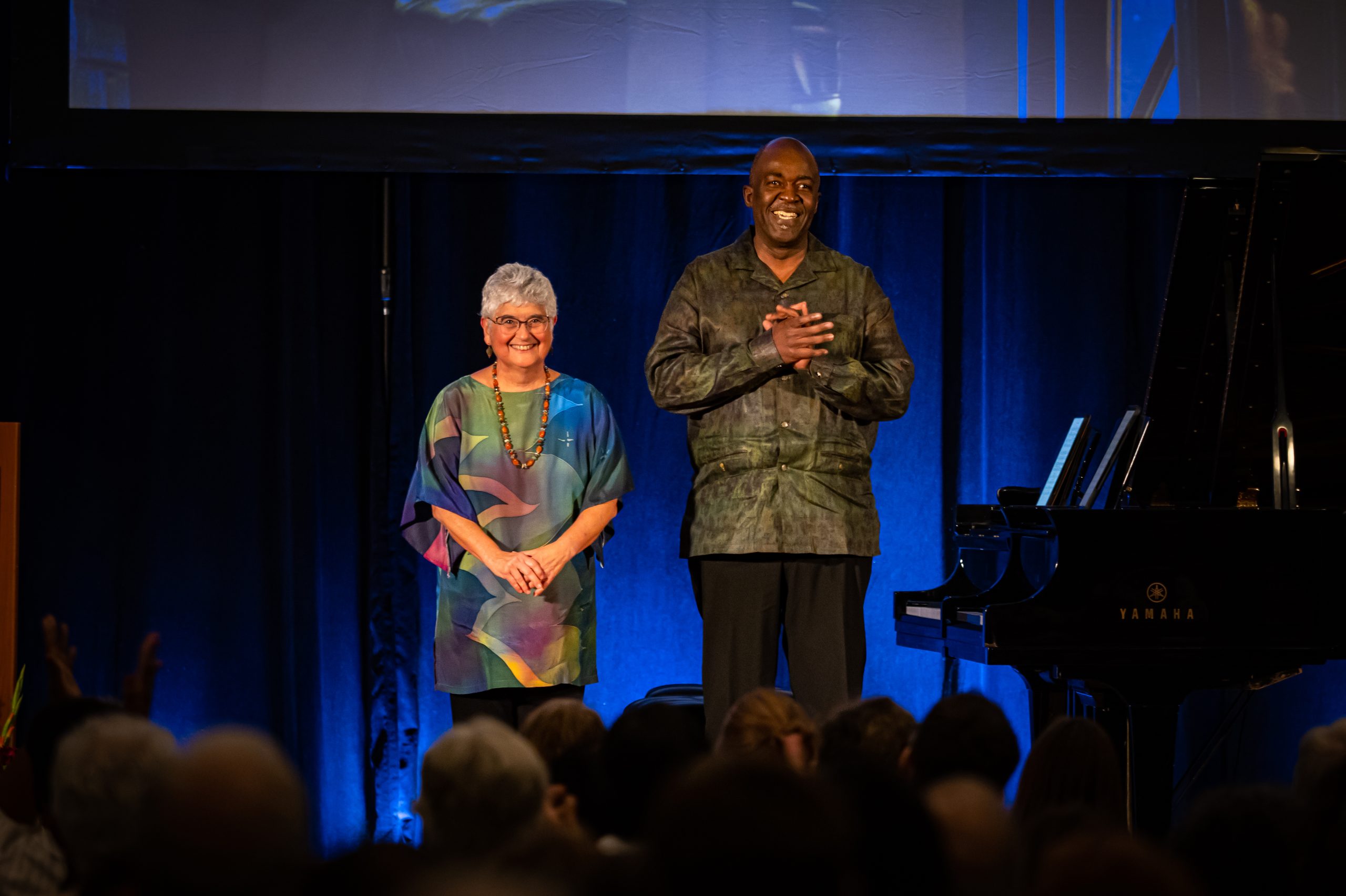To celebrate the latest episode of Piano Inspires Podcast featuring William Chapman Nyaho, we are sharing an excerpted transcript of his conversation with Jennifer Snow. Want to learn more about Nyaho? Check out the latest installment of the Piano Inspires Podcast. To learn more, visit pianoinspires.com. Listen to our latest episode with Nyaho on Apple Podcasts, Spotify, YouTube, or our website!

Jennifer Snow: I’d love for you to talk a little bit about how the collection [Piano Music of Africa and the African Diaspora, five volumes, Oxford University Press] came about, and how that all connected on that wonderful theme of generosity and service.
William Chapman Nyaho: Well, yeah, so that particular project started in 2001. I was doing a session for MTNA in Cincinnati and I had taken a leave of absence from the university that I was at in Louisiana. I was on Vashon Island in Washington.
JS: Lovely!
WCN: And I had, you know, been able to amass all these scores, out of print or manuscripts, of composers of African descent. So I did a presentation “Into Africa: Advocating Piano Music of Africa and the African Diaspora.” Luckily, Oxford University Press was at my presentation, and so they took me on, and that’s how it all started up in 2000. No it was 2002.
JS: How have you seen things change since 2002 when you published that extraordinary collection?
WCN: Honestly, I really think things have really started happening. Like, the concert last night Piano Stories [On Stage]. Somebody was saying, “Just look at the repertoire. I think this is the new norm.”
JS: Right?
WCN: You know it wasn’t, you know—
JS: Special presentation on this repertoire, it was just part of the canon.
WCN: It was just—exactly. Yeah, it’s part of the canon, no longer the “old faithfuls.” You know, yes, we did have Bach and that was just phenomenal. But, you know, it just made everything so important and just as special as Bach, you know. So I really see there’s been a huge change since I would say the publications, but probably even more so, during the time that we were locked up with COVID and we saw the death of George Floyd. You know, I mean, that was, I think—when people had to see that played over and over and over again—I think it was like a moment where, “Oh, wait a minute. Let’s stop and think about this.” You know.
JS: And the juxtaposition of, as a world we’re all together facing this horrible thing, and then something so horrific—
WCN: Horrific.
JS: It was, like the extreme juxtaposition of what we thought we were being as a human race, and what we are.
WCN: Exactly, you know, so I really think—and so, luckily, I would say, maybe those who had these books for several years, and were working or teaching them suddenly realized how important the work was. And for people to start understanding that, yes, we are diverse, and we need to celebrate our diversity, and promote equity and create access. And so it’s just been wonderful hearing Korean piano music, hearing music by, you know, people from the Philippines, you know, all this amazing music is now getting—people are hearing it.
JS: And it’s that kind of connection you speak about of, if you play the music from my country, you begin to understand who I am.
WCN: It’s correct.
JS: Cultural ambassadorship through music.
If you enjoyed this excerpt from Piano Inspires Podcast’s latest episode, listen to the entire episode with Nyaho on Apple Podcasts, Spotify, YouTube, or our website! Hear more from Nyaho at the 2024 Summer Intensive Seminar: An International Exploration of Piano Teaching Literature. Learn more here.
MORE ON WILLIAM CHAPMAN NYAHO
- WEBINAR: Music by Black Composers from Outside the USA with Willliam Chapman Nyaho, Leah Claiborne, and Maria Corley, with Luis Sanchez, host
- WEBINAR: Piano Inspires…with William Chapman Nyaho with Jennifer Snow
- WEBINAR: Into Africa: Exploring Art Music by Composers from the African Continent with William Chapman Nyaho, Bongani Ndodana-Breen, Fred Onovwerosuoke, Nyokabi Kariũki, and Olabode Omojola
- WEBINAR: Diversity in Music with Leah Claiborne, Leonard Hayes, Artina McCain, Desireé González-Miller, and William Chapman Nyaho
- MAGAZINE ARTICLE: Winter 2022: Questions & Answers by Jane Magrath
- MAGAZINE ARTICLE: Winter 2020: Pupil Saver: First Steps into Ragtime by Meg Gray
- MAGAZINE ARTICLE: Spring 2021: First Looks: Recordings by Geoffrey Burleson, Elaina Burns, Scott Cuellar, Elizabeth Moak, Nicholas Phillips, and Jason Sifford
- VIDEO: What Pieces Do You Refuse to Teach or Perform by William Chapman Nyaho
- VIDEO: How Can We Empower Others by William Chapman Nyaho